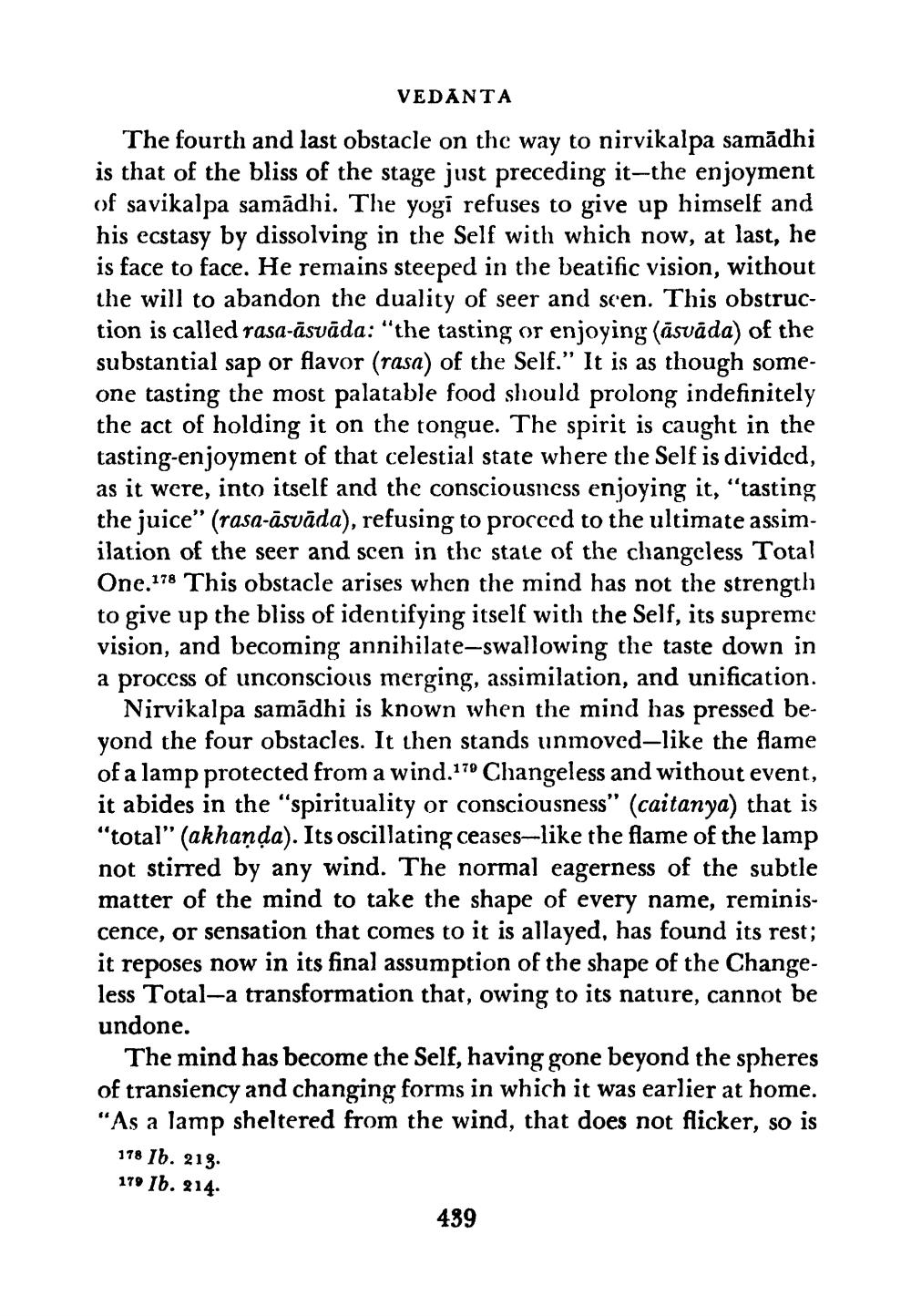________________
VEDANTA
The fourth and last obstacle on the way to nirvikalpa samādhi is that of the bliss of the stage just preceding it-the enjoyment of savikalpa samādhi. The yogi refuses to give up himself and his ecstasy by dissolving in the Self with which now, at last, he is face to face. He remains steeped in the beatific vision, without the will to abandon the duality of seer and seen. This obstruction is called rasa-āsvāda: "the tasting or enjoying (āsvāda) of the substantial sap or flavor (rasa) of the Self.” It is as though someone tasting the most palatable food should prolong indefinitely the act of holding it on the tongue. The spirit is caught in the tasting-enjoyment of that celestial state where the Self is divided, as it were, into itself and the consciousness enjoying it, “tasting the juice" (rasa-āsvāda), refusing to proceed to the ultimate assimilation of the seer and scen in the state of the changeless Total One.178 This obstacle arises when the mind has not the strength to give up the bliss of identifying itself with the Self, its supreme vision, and becoming annihilate-swallowing the taste down in a process of unconscious merging, assimilation, and unification.
Nirvikalpa samādhi is known when the mind has pressed beyond the four obstacles. It then stands unmoved-like the flame of a lamp protected from a wind.179 Changeless and without event, it abides in the "spirituality or consciousness" (caitanya) that is "total" (akhanda). Its oscillating ceases--like the flame of the lamp not stirred by any wind. The normal eagerness of the subtle matter of the mind to take the shape of every name, reminiscence, or sensation that comes to it is allayed, has found its rest; it reposes now in its final assumption of the shape of the Changeless Total-a transformation that, owing to its nature, cannot be undone.
The mind has become the Self, having gone beyond the spheres of transiency and changing forms in which it was earlier at home. "As a lamp sheltered from the wind, that does not flicker, so is
178 Ib. 218. 17Ib. 214.
489




